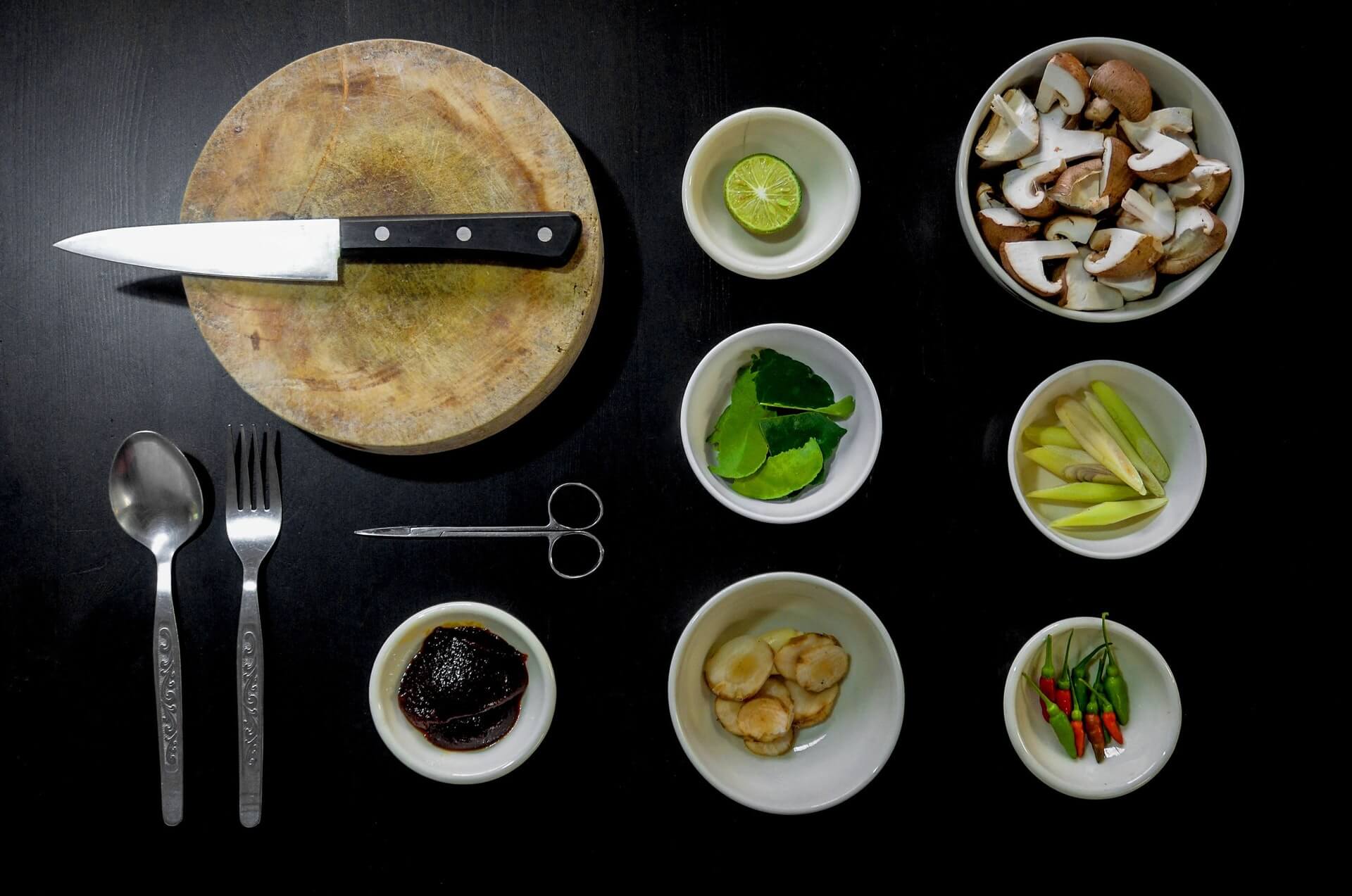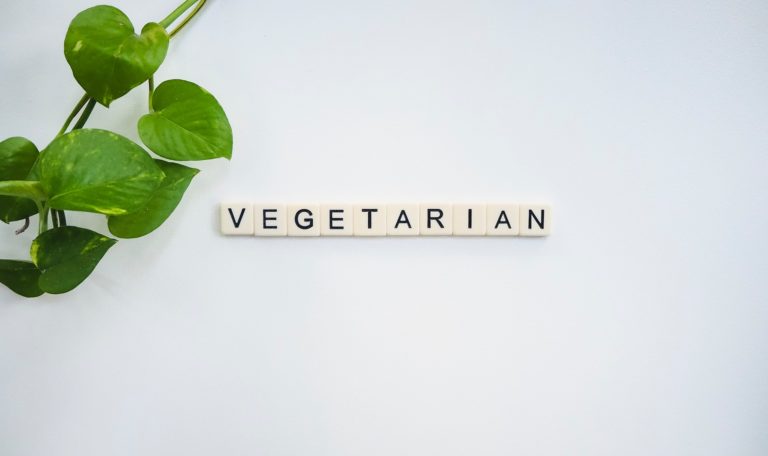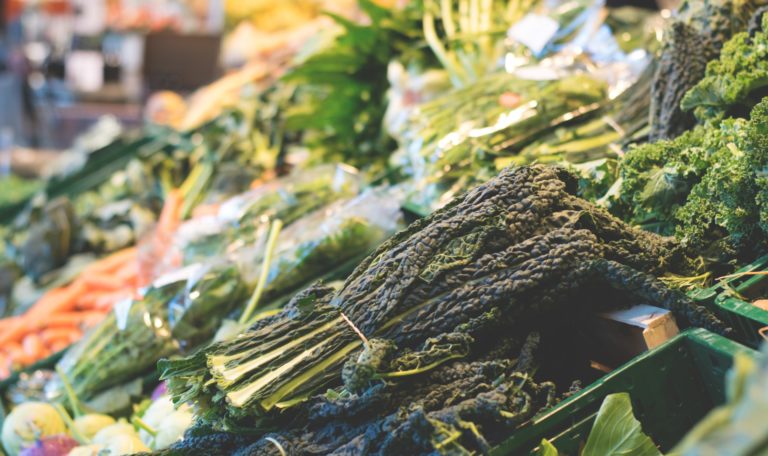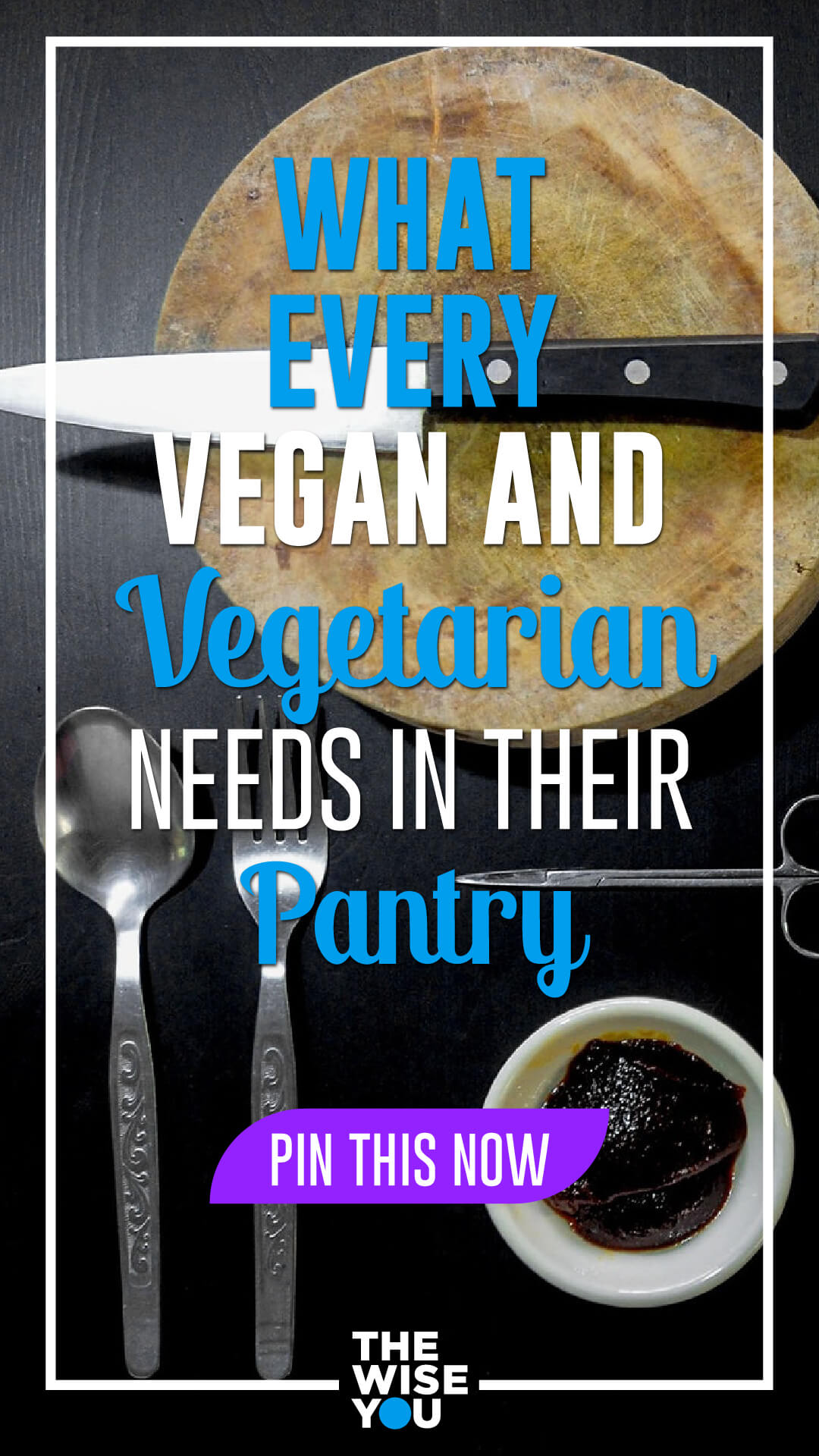A well-stocked vegan pantry is a well-kept secret to a healthy lifestyle. It is also the secret behind an efficient kitchen.
But adopting a vegan lifestyle is challenging, especially if you don’t have the right tools or stock in your pantry. However, it can be easy once you get the hang of it and can choose vegetarian staples while leaving out those that are not vegetarian. Some ingredients are non-vegan, though they may easily come across as vegan, you know? Well, they are sneaky and trickier to spot.
You may wonder, What Ingredients Are Not Vegetarian? Some of these ingredients are those that we often use as fillers or additives. For example, it is never easy to detect that beeswax, honey, casein, milk byproducts, candy, confectionaries, gelatin, and its byproducts, isinglass, weigh in sweets, and L. Cysteine in wine are not vegan, or sometimes not even vegan vegetarian foods.
Apart from the usual sweet and savory things that every vegan food pantry needs, several other vegan essentials are useful for vegans and vegetarians, and those who want to lead a meatless lifestyle.
While vegan food pantry essentials vary depending on personal tastes and preferences, ethnicity and allergies, these vegan staples are a great way to get started.
Read on.
Plenty of Legumes
We cannot underestimate the usefulness of proteins in vegan diets, that’s a fact. Now, legumes are the major source of proteins in any vegan and vegetarian diet because they don’t do animal protein.
Beans, peas, white beans, black beans, edamame whole bean, kidney beans, and more! These items are also good vegan staples for beginners, and you won’t go wrong with them.
You can consider getting canned beans, as they are significantly cheaper than many other legumes. And most people say they are tastier than other legumes, that’s a fact.
Full of antioxidants, fiber, protein, and other essential nutrients, legumes (especially beans and peas) are magic. They are easy to store and they can add heartiness to almost everything.
Now, it is the highest time you replace eggs with bean juice. Think about it.
Quinoa
This mystery ‘’rice’’ is yet another superfood you should not miss in your vegan food pantry. Quinoa is one of the world’s most popular foods.
Gluten-free and full of protein, Quinoa comes with sufficient amounts of all the nine amino acids. One thing that renders it the most nutritious of all other dry grains has to be its high amount of magnesium, fiber, Vitamin Bs and E, Iron, calcium, potassium, and antioxidants.
It is not a cereal grain but a pseudo-grain, which you can cook and eat the same way as rice and other dry grains.
White, red, and black Quinoa are the three main types of pseudo-grain. Quinoa is available in all food stores and restaurants across the world, so there is no reason you shouldn’t have it in your vegan food pantry.
Nuts and Nut Butter
We know nuts as great snacks and toppers, right? It will amaze you at the things nuts can do.
Besides being a good way to start a vegan lifestyle, I have found nuts to work well in easing the risk of heart problems such as stroke and blood pressure. What this means is that they are a sure great way to help you live a longer, healthier life as a vegan or vegetarian.
You can blend cashew nuts into cheese, use walnuts to make perfect salads, toss pine nuts into pesto, the possibilities are almost endless.
Bonus tip: To extend the life of nuts and maintain their freshness, it helps to store them in the freezer. Now, if you were wondering, “What should vegans have in their fridge?”, nuts are an absolute must-have.
Nuts add a lot of nutrients to your essential vegan recipes. And don’t forget to grab some nut or seed butter, preferably peanut butter the next time you go shopping. Groundnut butter pie, anyone?
Is nut butter good for you? Yes. They have higher nutritional value than many conventional grains; they boost blood circulation; they come with sufficient natural fiber; they are a healthy fat, and then they are good for weight loss because they help you control your hunger without gaining weight.
Fill your vegan food pantry with lots of nuts or seed nuts and you won’t regret that move.
Now, is it hot outside? The fridge becomes an even more important tool to have in your vegan food pantry.
What Should Vegans Have in Their Fridge?
Leafy Greens
Dark, leafy greens make for refreshing salads, and we all know that. They are useful for vegans and vegetarians, and any other person intending to eat vegan. If you want to keep your weight in check, and you should, it is good to reward your body with a boost of nutrition by eating crispy greens frequently.
Can you imagine that a single cup of crispy, dark kale can offer you over 1000% of your daily recommended vitamin K, 200% of vitamin C, and over 180% of daily vitamin A? Well, now you are knowledgeable.
Unfortunately, one sign that a person is doing well financially is ditching “rabbit” food for meat. But passionate vegans and vegetarians know that meat can never supplement the readily available leafy greens.
Besides essential vitamins, green leafy vegetables come with a lot of minerals and chemicals that help prevent the body against diseases. Their fiber aids in digestion and helps keep you full, hence aiding in weight loss within no time at all.
Also, fiber slows down the absorption of carbohydrates, which helps control blood sugar.
Vegetables such as kales and collards are rich sources of calcium, which strengthens bones and teeth.
To get full benefits, equip your fridge with a load of dark, leafy veggies that can give you at least five servings daily.
Fruits and Raw Vegetables
This one is obvious. No vegan vegetarian pantry should miss plenty of fruits and raw veggies because they are not only an essential addition to vegan recipes, but they are also affordable and versatile. The possibilities are endless.
Fruits are nature’s version of candy, and we should look at it that way. Pineapple, mango, blackberries, pawpaw, and more! They make for excellent refreshing snacks when it feels hot outside. But take care not to keep them in the fridge for too long as excess wetness would invite mold and moisture.
Often, most of us could use raw vegan pantry staples in our diets, and then it becomes easier to eat healthier when you do the preparation work in advance. To store raw veggies in your pantry, chop them during your free time and keep them in the fridge so you can just grab and go when you need a snack.
Coconut Milk
Coconut milk is a good animal milk replacer, and it is a sure great way to maintain a healthy lifestyle if you are a vegan or vegetarian.
Fortified with Vitamins B and D, coconut milk fortifies your bones to help them withstand the toughest activities you may undertake.
Coconut milk and almond milk are rich in calcium and other essential minerals, all of which work to maintain healthy bones and teeth, and flawless skin. What this means is that it is almost impossible to get old if you train yourself to use coconut milk.
Coconut milk comes with a soluble antioxidant fat that is Vitamin E, which works to protect the body from radical damage.
Are you on a weight loss journey? Well, coconut milk has medium-chain triglycerides (MCTs), which experts have linked to weight loss. This way, it boosts heat production and insulin sensitivity, which results in increased digestion of unnecessary body fat and weight.
Vegan Vegetarian Recipes
The vegan essentials we have explored above are the best toppers and additions to almost all recipes because vegan eating must not be boring and bland, right? Well, whether you are trying to say goodbye to the meat or you are just an enthusiast of vegan life, pack your meals with any of the products above. What you get will just be amazing.
Produce works well with steaks, zucchinis, squash puree, vegan gravy, melon soups, burgers, herby pitas, avocado mash, the list is endless.
In Conclusion
Most of the above vegetarian vegan pantry staples are kitchen essentials in almost every home, which proves that anyone can eat vegan. So, how do you stock a vegetarian pantry? We have answered that. You just need to come up with a nice list of vegan essentials such as dry storage samples, dried and canned beans, flour and grains, raw veggies, dried fruits, nuts, refrigerated essentials, nuts, milk, and what more? The list is not exhaustive, but the ones above will go a long way to enhance your vegan life.
Make a compassionate choice for animals and your health!

